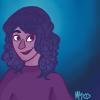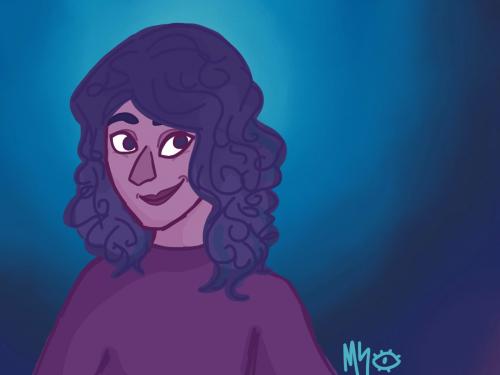First of all, a brief rundown of some relevant terms, and which games they appear in.
大魔王/Daimaou (Great Demon King)
Used in LoZ, OoT, OoX, and TP. My understanding is that daimaou is a fairly generic term to ascribe to a maou in Japanese media (just a way to say that you really don't wanna fuck around with this guy). Since both Ganons are canonically BAMFs, I think the term applies equally to both, even though only a few games use it.
闇の魔王/Yami no Maou (Demon King of Darkness)
Used in LttP, OoX, and FSA. Note that the title is never used for the Ganon of the 3D games, despite both Ganons having ties to Darkness. FSA Ganon gained the title King of Darkness for possessing the Trident, so that explains why only he is called the Demon King of Darkness.
魔界/Makai (Demon World)
Used in AoL, OoT, WW, and FSA.
闇の世界/Yami no Sekai (World of Darkness)
Used in LttP, OoT, OoX, WW, and FSA.
Amatsu-Mikaboshi
God of evil and the stars. Raien brought this up a year ago. Here's what the wikipedia article (lol) has to say on its origins.
The exact details and characterizations of the Amatsu-Mikaboshi are very cloudy or unclear, as he (or it) is rarely if ever mentioned in any of the typically referenced texts of East Asian Mythology. From what can be gleaned and pieced together from ancient Japanese myths, the Mikaboshi is not a physical god in the sense like Amaterasu or Susanoo, but a dark Force that existed before the universe, reigning alone in absolute darkness and control.
Something happened, however, and in one brief instance the iron control of the Dark Force of the Mikaboshi was shattered by the movement of In and Yo, which brought forth the Universe and the active chaos of life and movement, which later became the gods and humanity. The solidity of the Primordial Darkness had been destroyed, but its residue still lingered on in the hearts of all beings and is allegedly the cause of human passions.
The Mikaboshi originated as an antithesis to the positive forces of life in Shinto, thus its lack of a singular form. It is a force of absolute domination that feeds off of human emotions that, if left unchecked, result in social, emotional, or physical destruction. For instance, a desire for success can lead to greed and lust for power, which is the result of the influence of the Mikaboshi's residue. Love for another can lead to obsession or jealousy, also result of these dark influences. In this respect the Mikaboshi could be thought of as being a Japanese "Satan figure." This is supported by its title as "August Star of Heaven" which is similar to the term "Morningstar" which is used another name for Lucifer in Christianity.
In later centuries, certain creatures that are by nature dark or demonic were said to be connected to the Mikaboshi in a sort of slave relationship to its power. Souls that died with strong attachments and came back to hurt the living were said to have become physical agents to the Mikaboshi's force in a more direct way than simple greed or lust when living, and such creatures as oni (ogre demons), Ama-no-Jaku, and Demons were also results of certain natural elements falling prey to passions fed by the Mikaboshi's temptations. The ultimate goal, it is said, was to absoultely destroy everything by dissolving it back into chaos, whereby the static, controlling power of the Mikaboshi could return.
I think a lot of what I've quoted about Mikaboshi applies to the Zelda universe, though I think of Zelda's Darkness as an equivalent to Mikaboshi itself, and not just a property or tool of Mikaboshi. I also don't think of it as a deity or any kind of sentient force, but just the primordial chaos of the universe and the antithesis of Light. The Dark World is probably part of this, existing as another plane of existence throughout Hyrule's history, with Ganon making use of it as his demon world.
魔族/Mazoku (Demon Race)
Here's my current understanding of mazoku. The term originated as a way to distinguish the demons of other mythologies from those of Japanese mythology. Depending on the story, mazoku characteristics differ, but they typically have demonic features, such as horns, pointed ears, and the like. The leader or leaders of mazoku are called maou and their dominion is a makai. In some stories, any being can become a maou. For example, when applying the terminology to Christian mythology Lucifer ascends to maou status when he becomes Satan. The term daimaou is sometimes used to suggest high status.
In the Zelda universe, one of the ways in which mortals can become demons is by continuous use of Dark magic, as we see with Ganondorf and Twinrova in Ocarina of Time, who are depicted with greenish skin. Ganon later gains pointed ears when he becomes a demon king. Twilight Princess gives him fangs and pointed ears even before he becomes a demon king.
To emphasise the ties to Darkness, Ganon's demon world is known as the Dark World and Trident Ganon is the Demon King of Darkness. The term Dark World is used to describe any area that Ganon has covered in Darkness, though Four Swords Adventures and the Oracle games suggest there is an otherworldly Dark World which serves as Ganon's demon world. His efforts to cover Hyrule in Darkness show his desire to expand his demon world into Hyrule.
Edited by Fin, 01 February 2010 - 12:20 PM.

















